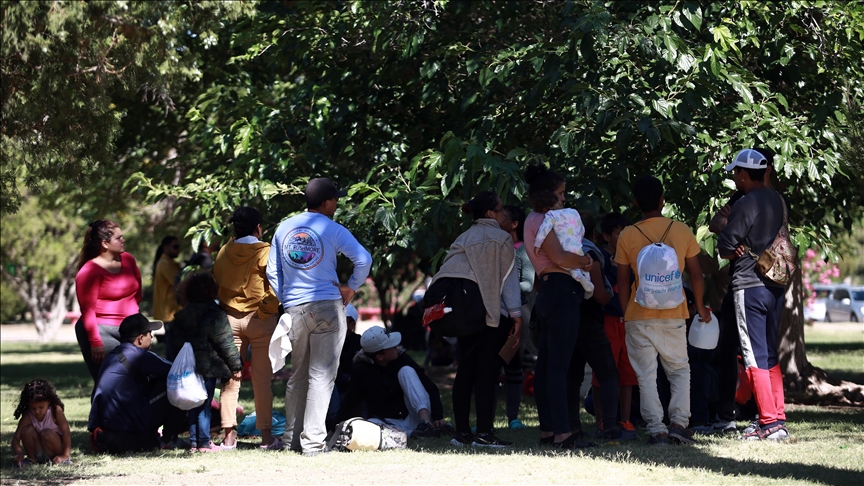Israel Grabs Palestinian Lands, Resumes Wall Building
With the absentee law reactivated, the Palestinian citizens will lose more than 1,000 acres (415 hectares) of farmland within Al-Quds municipal borders, he added.
Under the 1950 absentee law, Palestinians living in the West Bank and own property in Al-Quds could be labeled as absentee landowners, allowing the Israeli government to confiscate their lands without compensation.
The absentee law was passed in 1950, allowing the Israeli government to confiscate properties owned by hundreds of thousands of Palestinians who fled or were forced from their homes during the 1948 war which resulted in the creation of what is now known as Israel.
Secret Decision
Israeli daily Ha’aretz reported recently the Sharon government had made a decision in June 2004, to enforce the law, but did not make it public.
However, a senior Israeli official declined to assert the measure has already been approved, while not rejecting the intention to pass it.
“There is an intention to do that. It hasn’t been approved yet. That’s all. There are discussions about this law,” he told Reuters, declining further comment.
The justice and housing ministries and the Jerusalem municipality also declined to comment.
“All the government decisions on this issue are made secretly,” Daniel Seidemann, an Israeli lawyer representing many of the landowners, was quoted by the New York Times Tuesday, January 25, as saying.
“It is treated like a security issue, not a property issue.”
Khalil Al-Tafakji, map circle director of the Ramallah Arab studies body said the Israeli law risks the loss by Palestinians of half their properties in Al-Quds.
“Israel had used the law in 1948 to seize around 97% of lands of what is now known Israel,” he noted.
He added that the law had also been used to seize Palestinian properties to allow Jewish settlement groups to control whole areas and neighborhoods.
Land Seizure
Johnny Atik, a Palestinian resident in Bethlehem, said that he was told by the Israeli authorities that eight acres of olive groves now belonged to the Israeli Custodian of Absentee Properties, a body formed by the 1950 law, according to The Washington Post.
Atik’s land is 100 yards from his home, which sits on the other side of Israel’s illegal separation wall in the West Bank.
He added that lands belonging to 40 Palestinian families in his neighborhood had also been taken.
“This is state theft, pure and simple,” said Hanna Nasser, the mayor of neighboring Bethlehem.
The mayor linked the Israeli decision to the West Bank separation barrier that Israel is building in the same area.
“When Israel started building this wall, they stopped letting people use this land,” he said.
What Will Remain?
The Israeli move was seen by the Palestinians as a bid to pre-set the final status negotiations, Reuters said.
“What will remain for us in final status talks?” Palestinian Negotiations Minister Saeb Erekat said.
He added that the Palestinian leader Mahmoud Abbas (Abu Mazen) would protest to Israel against the absentee law.
Israeli lawmakers and human rights groups also said the government measure was a land grab.
Yossi Beilin, leader of the Israeli Yahad Party, said the Sharon government has taken unprecedented measures to seize the Palestinian lands in Al-Quds.
He noted that the Israeli opposition would hold a meeting to annul the government absentee law.
“It’s just an obvious land grab, and it is absolutely illegal,” said Sarit Michaeli, spokeswoman for the Israeli rights group B’Tselem.
He added that “it is so blatantly an attempt to take as much land as possible with as few Palestinians as possible.”
Construction
Meanwhile, Israel’s attorney-general approved the construction of the 4-km (2.5 mile) segment of its separation wall along a new route near the large Jewish settlement of Ariel after residents of the adjacent Palestinian village of Salfit petitioned a court against land expropriation, Reuters said.
An Israeli court had ordered construction of the separation barrier around the Ariel enclave halted last June after the appeal was filed and then asked the sides to resolve the issue through negotiations.
Changes were subsequently made to the route although Salfit’s mayor denied Monday reaching any deal with Israeli authorities.
The Palestinian Authority said the Israeli court decision would undermine efforts of the Palestinian leader to broker a ceasefire between the Palestinian resistance factions and Israel.
“How we are going to convince our people and factions that we are trying to end Israeli occupation while Israel is imposing facts on the ground,” Erekat said.
“This will have a deep and negative impact on our efforts to reach a ceasefire.”
The new Palestinian leader has been engaged in talks with resistance factions’ leaders in Gaza on reaching a common ground to halt attacks against Israel.
The separation wall has been deemed illegal by the International Court of Justice and in July, the UN General Assembly adopted a resolution calling on Israel to tear it down.
As usual, Israel, backed by Washington, defiantly refused to abide by the ruling or the resolution.



